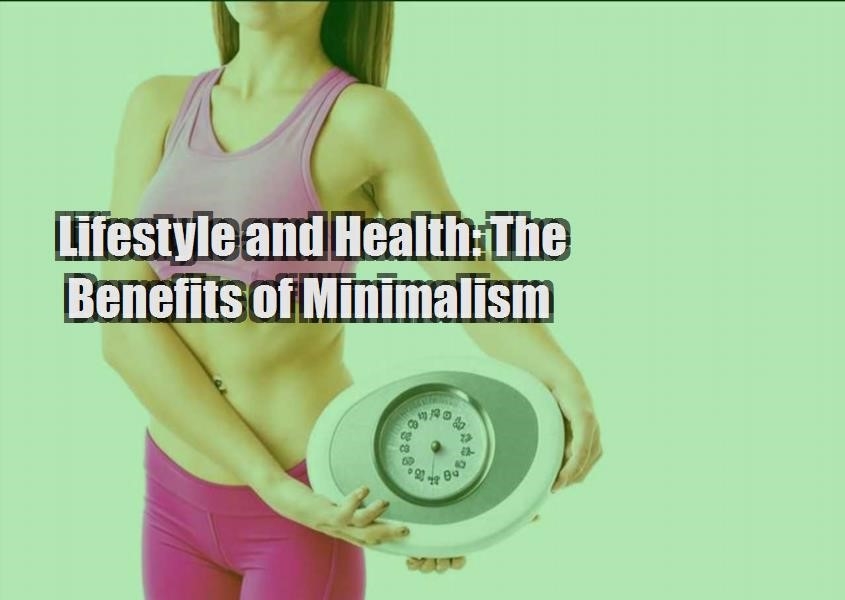In todays fast-paced world, the concept of minimalism is gaining significant attention. Minimalism is not just about decluttering your home; it extends to all aspects of life, including mental and physical health. This article explores the myriad benefits of adopting a minimalist lifestyle and how it can positively impact your overall well-being.
What is Minimalism?
Minimalism is a lifestyle choice that emphasizes simplicity and the removal of excess. It involves decluttering your living space, simplifying your schedule, and focusing on what truly matters. By eliminating unnecessary possessions and distractions, minimalists aim to lead a more purposeful and fulfilling life.
The Core Principles of Minimalism
- Intentionality: Every item and activity in your life should serve a purpose.
- Quality over Quantity: Prioritize high-quality items and experiences over a large number of possessions.
- Mindfulness: Be conscious of your consumption and the impact it has on your life and the environment.
- Simplicity: Strive for simplicity in all areas of life, from your home environment to your daily routines.
Health Benefits of Minimalism
1. Reduced Stress Levels
One of the most significant health benefits of minimalism is reduced stress. Cluttered spaces can lead to a cluttered mind, causing feelings of anxiety and overwhelm. By simplifying your surroundings, you create a more serene and peaceful environment, which can significantly reduce stress levels.
2. Improved Mental Clarity
Minimalism encourages a clear and organized living space, which in turn promotes mental clarity. When you are not constantly distracted by a multitude of possessions, you can focus better on important tasks and decisions. This mental clarity can enhance productivity and overall mental well-being.
3. Enhanced Focus on Health and Wellness
A minimalist lifestyle often leads to a greater focus on health and wellness. Without the distractions of unnecessary belongings, you can dedicate more time to activities that promote physical health, such as exercise, cooking nutritious meals, and practicing mindfulness or meditation.
4. Financial Benefits
By adopting a minimalist approach, you can save money by purchasing fewer items and focusing on quality over quantity. The financial savings can be redirected towards health-related investments, such as a gym membership, healthier food options, or wellness retreats.
Minimalism and Lifestyle
1. Greater Appreciation for Life
Minimalism encourages living with intention and appreciating the small things in life. By removing the excess, you can fully enjoy and value your experiences and relationships. This appreciation can lead to a more satisfying and enriched life.
2. Improved Relationships
With fewer distractions and a simpler lifestyle, you can dedicate more time and attention to your relationships. Minimalism fosters deeper connections and stronger bonds with family and friends, as you prioritize meaningful interactions over material possessions.
3. Increased Freedom and Flexibility
Less stuff means less to worry about. A minimalist lifestyle provides greater freedom and flexibility, allowing you to travel more easily, move homes with less hassle, and enjoy a more spontaneous and adventurous life.
4. Environmental Benefits
By consuming less and making mindful choices, minimalism also contributes to environmental sustainability. Reducing waste and focusing on eco-friendly products can lessen your carbon footprint and promote a healthier planet.
How to Start Your Minimalist Journey
1. Declutter Your Space
Begin by decluttering your living space. Sort through your belongings and keep only what you truly need and value. Donate or sell items that no longer serve a purpose in your life.
2. Simplify Your Schedule
Take a close look at your daily and weekly routines. Eliminate activities that do not bring joy or contribute to your goals. Focus on meaningful and productive tasks that enhance your well-being.
3. Be Mindful of Your Consumption
Before making a purchase, ask yourself if the item is necessary and if it aligns with your values. Opt for quality over quantity and choose products that are durable and environmentally friendly.
4. Practice Gratitude
Incorporate gratitude into your daily life. Take time to appreciate what you have and the positive aspects of your life. This practice can shift your focus from wanting more to being content with less.
Conclusion
Adopting a minimalist lifestyle offers numerous benefits for both your health and overall lifestyle. By simplifying your surroundings, focusing on what truly matters, and being mindful of your consumption, you can lead a more fulfilling and healthier life. Embrace minimalism and experience the positive changes it can bring to your well-being.
Remember, minimalism is a journey, not a destination. Start small, be patient with yourself, and enjoy the process of creating a more intentional and meaningful life.







